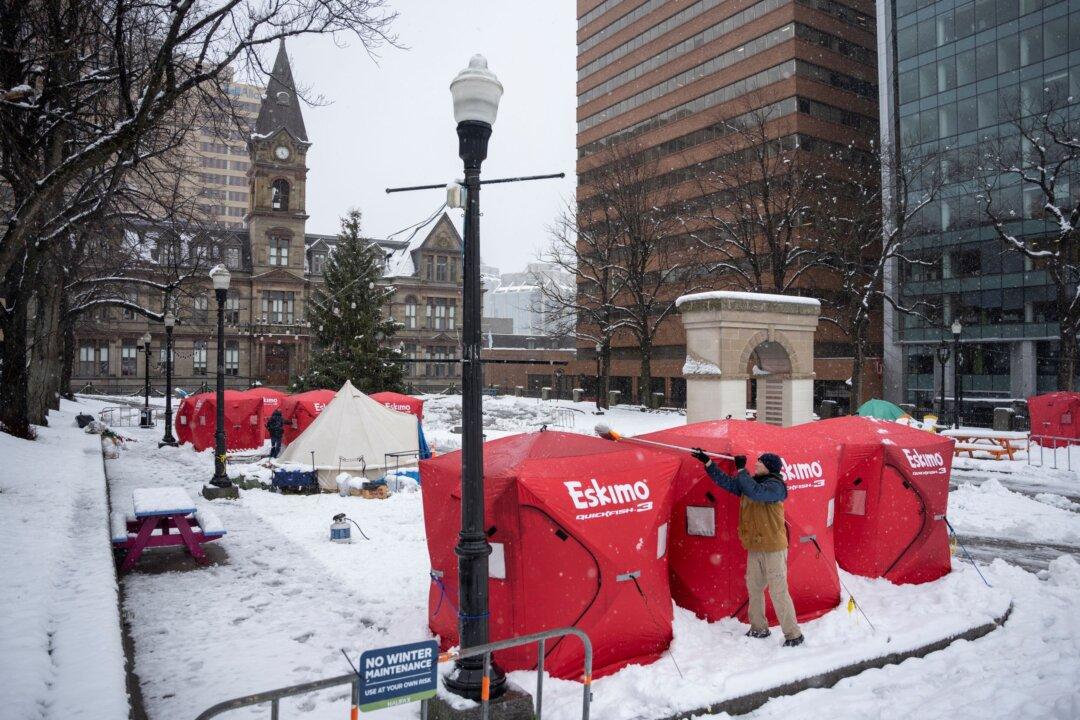More and bigger homeless encampments have been set up across Canada recently and, with the help of advocacy groups, they’re taking on a more permanent feel.
Hunkering down for the winter, some have generators, heating stoves, winterized tents, and more. Advocacy groups have helped them obtain these supplies, along with legal help to stop attempts at moving them.





